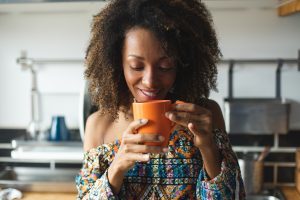 For those long days when you’re experiencing sleep deprivation, relying on caffeine may not be the answer. According to a new study from Michigan State University, caffeine can only get you so far after a rough night’s sleep.
For those long days when you’re experiencing sleep deprivation, relying on caffeine may not be the answer. According to a new study from Michigan State University, caffeine can only get you so far after a rough night’s sleep.
The study published in the Journal of Experimental Psychology: Learning, Memory & Cognition analyzed the impact of caffeine after a night of sleep deprivation in over 275 participants. Each person was required to complete a simple attention task as well as a more challenging task known as “placekeeping,” which required the completion of tasks in a specific order without repeating steps.
Advertisement
It was found that sleep deprivation impaired performance on both types of tasks. However, caffeine did help people successfully achieve the easier task. But, it had little effect on the performance of the placekeeping task for most of the participants.
This means that caffeine may help people stay awake after sleep deprivation and help them achieve simple tasks. However, it doesn’t do much to prevent procedural errors that can cause things like car accidents and medical mistakes.
Sleep Deprivation in the United States
Sleep deprivation has been a rising problem in the US, but during the pandemic, it has intensified. Lacking sleep can affect cognition and alter mood. If it is not fixed, it can eventually take a toll on immunity.
Study author, Kimberly Fenn explained, “Caffeine increases energy, reduces sleepiness and can even improve mood, but it absolutely does not replace a full night of sleep. Although people may feel as if they can combat sleep deprivation with caffeine, their performance on higher-level tasks will likely still be impaired. This is one of the reasons why sleep deprivation can be so dangerous.”
As the first study to investigate the effect of caffeine on placekeeping after sleep deprivation, researchers hope it can bring light to the dangers of the situation. With an increased risk of procedural errors, this could mean broad implications for those who must perform high-stakes procedures with insufficient sleep. These professions include surgeons, pilots, and police officers.
This study helps to underscore the importance of prioritizing sleep. To get a good night’s rest, be sure to sleep in a dark, cool room with no distractions. Turn off all electronics about an hour before bedtime, and if needed, perform controlled breathing or meditation before hitting the sheets.
